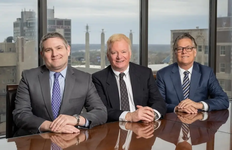All over the world, nonprofits and their big donors are in the news almost daily. However, there is a little-talked-about industry that drives the progress these nonprofits make, just going about its business, quietly getting the work done.
While tucked neatly into the background, the fundraising arm of the nonprofit services sector has always delivered big results. How big? Well, as research suggests, even if just 20 cents of every one of the $499.3 billion Americans gave to charities in 2022 went into the services that inspired people to give, that would be approximately $100 billion invested in professional fundraising.
Despite the huge impact of the nonprofit sector on the US economy, until around 40 years ago, many people didn’t think of fundraising as a professional line of work, nor of philanthropy as an academic field of study. For the longest time, there appeared to be a general consensus that staff at nonprofit organizations were mostly civic-minded individuals volunteering to support their community rather than paid professionals. However, the industry would not have been able to achieve as large of a positive impact as it does if it relied on a fully volunteer workforce. Until recently, the idea of professional fundraising was foreign to many people outside of the US.
According to Craig Leach, Founder, and Chair of Collegium, a rapidly growing global holding company of professional services firms that are solely dedicated to advancing the nonprofit sector, one of his reasons behind starting the organization in 2017 is to help advance fundraising and philanthropy as an invaluable profession, attracting its share of the best and brightest minds. Having been in philanthropy for more than four decades, Leach has seen how much the industry has evolved and grown.
“Throughout my career, one of my goals has been to help elevate philanthropy, fundraising, and nonprofit management to a station in our culture where all the other great professions reside, such as law, accounting, and business consulting. Firms like McKinsey and Deloitte have done this to great effect. From 1636, when Harvard University was established, to about 1980, fundraising was framed as an altruistic hobby, not a profession,” he says.
Leach shares a story from early in his career when he was in his 20s. He was sharing a long elevator ride with a lady in her 50s, who asked him where he worked. Leach said that he worked for a fundraising firm, and she assumed he was a volunteer. When he corrected her and said that he was a professional, she was taken aback.
“She looked at me disapprovingly over her glasses, and she couldn’t believe I was getting paid to raise money for charity,” he says. “I really felt judgment from her, and this became a major inflection point in my life. I could’ve walked away from the profession to avoid feeling judged ever again, but it strengthened my resolve that society needs more people doing what I'm doing, and yes, they should get paid. So I doubled down on my profession and started my quiet campaign to help elevate the industry. I’ve thought of that lady almost every day for the last 40 years.”
According to Leach, professionalism is important when raising funds, as people are hesitant to give large sums of money to something they don't think is professionally managed. To convince potential donors, especially high-networth individuals, to give, there must be a professional plan with a beginning, middle, and end. It must delineate a clear goal and business case for investing in a cause. And, importantly, it must instill a sense of emotional connection that sophisticated donors are seeking. Fundraisers must also provide data-driven evidence that the project can be successful, demanding rigorous research, data analytics, and feasibility studies. This all points to the indisputable reality that fundraising operates at the intersection of both art and science, requiring specialized skill sets and expertise.
In recent decades, recognition of professional philanthropy has grown in the US. While Leach majored in political science and fell into fundraising as a profession, many colleges and universities now offer degrees in philanthropy as an academic discipline. In 1987, Indiana University established the Lilly Family School of Philanthropy, the world's first school solely dedicated to the study and teaching of philanthropy, and Leach was invited to be a member of its Board of Visitors. Many other educational institutions across the US soon followed suit.
According to Leach, he founded Collegium to provide top-notch, diverse professional services for organizations' philanthropy-related activities. He explains that most large nonprofits, such as universities, hospitals, and cultural institutions, typically have an in-house professional or team in charge of day-to-day fundraising. However, when it comes to big campaigns, mostly involving millions -- or increasingly, billions -- of dollars, their in-house resources are often not enough. Collegium offers them an integrated one-stop solution.
Collegium embodies the spirit of BIG thinking – which stands for Bold, Interdependent, and Generative partnership. It leverages the collective power of professional services to propel nonprofits toward unprecedented levels of success.
By bringing together and consolidating the most expert and mature firms across the industry, Collegium is able to deliver results exponentially larger than the sum of its parts. The interdependence and collaboration of Collegium's partnerships enable each company to achieve greater results and deliver a stronger positive impact on society.
“Philanthropy was once a uniquely American concept – for hundreds of years it has been a part of our culture to give and take care of our communities,” says Leach. “And now, thanks to technology, among other things, it has spread far and wide and is having a transformative impact on the giving practices of people in other parts of the world.
“Technology has and will continue to dramatically transform the nonprofit landscape, making the very idea of philanthropy more accessible to greater numbers of people around the globe than ever before,” he adds. “But it has also created complex challenges for an ever-growing number of nonprofits and social causes competing for support. We intend for Collegium to bring calm to that chaos.”
Media Contact:
Name: Nicole Antil
Email: [email protected]






